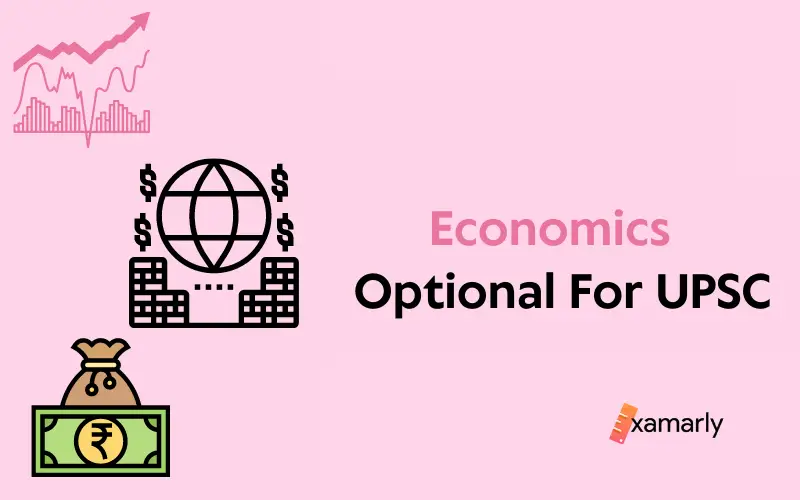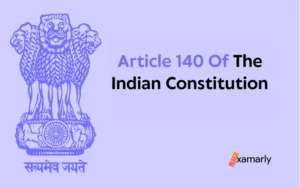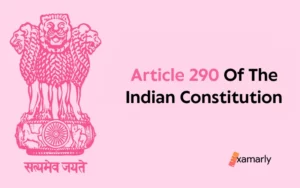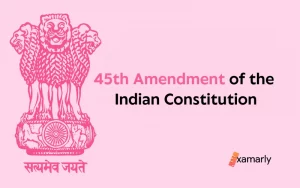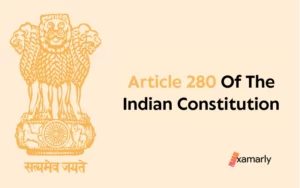The UPSC civil services Examination is thought to include a large amount of material on the Indian economy and economics. Economics Optional For UPSC is extensive. Aspirants require a degree-level comprehension. The first optional paper in economics is technical. Candidates from different backgrounds could struggle to succeed on Paper I without enough preparation strategy. But, on the other hand, this elective course is quite interesting.
- Comparison/Similarity with other Optional Papers
- Advantages Of Economics Optional For UPSC
- Disadvantages Of Economics Optional For UPSC
- Mastering The Subject From Basics
- Importance Of Academic Background
- What Time Duration Is Required For Preparation?
- Overlapping Syllabus With GS
- Help In Interview
- Economics Optional For UPSC Syllabus
- Recent Toppers Of UPSC CSE With Economics Optional
- Data/Scores Available
- Standard References
- Conclusion
- FAQs
Comparison/Similarity with other Optional Papers
The optional subject of economics is more reasonable. Therefore, unlike other humanities subjects, it doesn’t necessitate memorizing facts. Therefore, one must comprehend the basic understanding and foundations of economics to receive decent scores. Concepts should be applied to exam questions. The majority of inquiries need a specific response rather than lengthy narratives or pointless writing. As a result, be sure to write clearly and succinctly when responding. Don’t employ the methods used in other courses because it is a technical subject and different from popular optional subjects.
Advantages Of Economics Optional For UPSC
- It is a logical subject and rational.
- In overall, scoring is often good.
- The overlapping is noteworthy because the economics optional will indeed address almost 60% of the UPSC curriculum for GS paper III. Additionally, this optional subject has the potential to yield at least 30 marks in the preliminary exam.
- There are plenty of books and study materials accessible for economics.
- Because the subject focuses more on logical reasoning, this topic is advised even for those with a background in science or technology. Candidates without any prior knowledge of this topic may also apply.
- The portion for economics in the UPSC syllabus is detailed and precise.
- Candidates who have conceptual clarity will be able to create solid responses on this test.
- Candidates might perform well in economics papers if they are proficient in using comprehending graphs.
Disadvantages Of Economics Optional For UPSC
- If you want to learn this subject well, you must be passionate about it. Some people think this topic is a little dry.
- You also need to be competent in mathematics if you want to succeed in economics.
- There is no avoiding graphs in economics; they are everywhere. You must therefore feel at ease around them.
- You must be exact and specific in your responses because this is a technical subject.
Mastering The Subject From Basics
- For Economics, start with the NCERT textbooks for classes 11 and 12. They will assist you in developing a strong theoretical foundation.
- The Indian Economy by Ramesh Singh can then be read after that.
- Students should read through the Union Budget and Economic Survey after finishing the foundational texts. These two are the bare minimum for understanding the Indian economy.
- Read frequently about economic news, politics, and government initiatives as you progress through your preparation.
- Keep a journal of significant Reports, Rankings, Economic Institutions, etc.
- Practice the UPSC CSE Prelims and Mains Questions from the previous year papers after expanding your knowledge.
- To guarantee you recall all the crucial elements throughout the exam, periodically review the subject and consistent practice answer writing.
Importance Of Academic Background
Comparatively speaking to other optional disciplines, economics is regarded as a challenging elective. If the candidate has a graduate degree in economics, you only need to start with the basic concepts and theories. Following that, candidates must work on current affairs in addition to giving their work a final polish by the UPSC Syllabus. Candidates with a prior academic understanding of this field are unquestionably at an edge and can easily finish the syllabus in much less time due to their conceptual acquaintance.
Related – Economics Notes Which You Shouldn’t Miss!
What Time Duration Is Required For Preparation?
- In six weeks, students can effortlessly finish the complete UPSC CSE Economics syllabus.
- It is recommended that students set aside at least 6 to 8 hours per day for preparation and 1 to 2 hours every day for preliminarily and mains question sets.
- Additionally important components of UPSC Economics Optional that need to be extensively addressed are current issues and government initiatives.
- The recommended YouTube Playlist, Indian Economy by Ramesh Singh, Class 11 and 12 Economics NCERT, etc. are some of the materials to be covered.
Overlapping Syllabus With GS
Nearly 55% to 60% of the core GS subject paper-III is covered by the optional economics curriculum. Additionally, by studying for this optional subject, one might get close to 30 marks in the preliminary exams. This overlap is extremely important and greatly facilitates planning.
The Topic-Wise Distribution Of Questions In The Economics Optional In UPSC mains:
| Topics | Probable Number of Questions |
| Indian Economy | 40-45 |
| Micro and Macro Economics | 35-40 |
| International Economics | 15-20 |
| Money, Banking & Public Finance | 10-15 |
| Growth and Development | 10 |
| Statistics | 7-10 |
Help In Interview
No matter your academic background, there are some economics-related questions in the UPSC Civil Services examination interview. Covering topics like Economic news, politics, and government initiatives will aid during the interview.
Economics Optional For UPSC Syllabus
Click the link below to get the complete syllabus for Economics Optional For UPSC Syllabus.
Economics Optional Syllabus For UPSC
Recent Toppers Of UPSC CSE With Economics Optional
Numerous excellent students have chosen economics as an option. Probably the most well-known user of this optional is Gaurav Agrawal, who finished first in the Civil Service exam 2013. He received excellent scores of 134 and 162 in the optional papers.
The initials of a few top students who chose economics as an optional course are listed in the following table.
| Name of the candidate | Year of passing | Total marks (500) | Paper I ECO (250 MARKS) | Paper II ECO (250 MARKS) |
|---|---|---|---|---|
| YASH JALUKA (AIR-4) | CSE- 2020 | 284 | 131 | 152 |
| KUMAR ANURAG (AIR48) | CSE- 2018 | 314 | 155 | 159 |
| ABHIJEET SINHA (AIR19) | CSE- 2017 | 288 | 140 | 174 |
| TEJASVI RANA (AIR12) | CSE- 2016 | 325 | 173 | 152 |
| GAURAV AGARWAL (AIR1) | CSE- 2013 | 296 | 134 | 162 |
Data/Scores Available
According to the most recent data from the UPSC, 233 candidates chose economics as an optional subject in the 2017 UPSC exam. A pass rate of 6.9% was achieved for the topic that year with 16 of these candidates passing the examination.
The following table lists the economics optional chances of success from 2012 to 2017.
| Year | No. of candidates appeared | No. of candidates cleared | Success rate (%) |
| 2012 | 269 | 51 | 19 |
| 2013 | 188 | 38 | 20.2 |
| 2014 | 214 | 26 | 12.1 |
| 2015 | 185 | 19 | 10.3 |
| 2016 | 326 | 37 | 11.3 |
| 2017 | 233 | 16 | 6.9 |
Standard References
Advanced Microeconomics:
- Advanced Microeconomics theory – Ahuja
- Intermediate Micro Economics – Varian
- Microeconomics – Robert Pindyck and Daniel Rubinfeld
Advanced Macroeconomics:
- Modern Economics – H.L Ahuja
- Macroeconomics – Richard Froyen
- Macroeconomics – Gregory Mankiw
- Macroeconomics reader – Snowdon and Vane
Money – Banking & Finance:
- Modern Economics – H.L Ahuja
- Money & Banking – N.K. Sinha
- Public Finance in Theory and in Practice – Musgrave and Musgrave
International Economics:
- International Economics – Dominick Salvatore
Economic Growth and Development:
- Development Economics – Debraj Ray and Thirlwall
- Economic Theory and Underdeveloped Regions – Myrdal
Indian Economy
- Indian Economy Since Independence – Uma Kapila
- Indian Economy – Performance and Policies – Uma Kapila
- Indian Economy – Dutt and Sundaram
- Hindu and EPW for a critical perspective
- Economic Survey
- India YearBook
Conclusion
- Preliminary and mains exams on the Indian economy require distinct methods.
- Specific topics related to planning, resource mobilisation, growth, development, and employment, as well as government budgeting, cropping patterns, the public distribution system, technology missions, food processing, land reforms, liberalisation, infrastructure, and investment Models, are covered in the mains syllabus.
- The structure and character of the questions would become more apparent if we look at the questions from the Indian Economy area for Prelims and Mains. To answer the majority of the questions, you must have a conceptual clarity of economics and the Indian economy. It is also necessary to have the ability to use the economic notion in real-world economic situations.
FAQs
Is Economics Optional a Scoring Subject for UPSC CSE Mains Exam?
Many applicants have achieved 300 or higher in the economics section, and many are top-rank holders. Nevertheless, the UPSC does not favor any of its optional subjects over another, therefore when selecting an optional, the student needs to put their interests first.
Which books are among the most crucial for covering the UPSC Exam’s Economics Optional?
Among the four required subjects for the UPSC Civil Services examination is economics. It is advised to read “Indian Economy” by Ramesh Singh or “The Indian Economy” by Sanjeev Verma for a full comprehension of the fundamental principles and a thorough cover of the subject.
Preparation Strategy for Economics Optional Paper for Civil Services mains Exam?
The NCERTs’ introduction to the fundamentals would be very beneficial. Later, it is vital to comprehend key economic concepts that are frequently heard in the news. Current issues have a massive impact on economics questions than fundamental economics. As a result, one should read all relevant news with an economics background. While learning the basics, one could resort to reference works like Ramesh Singh’s Indian Economy.
Economic Survey: What is it?
The Ministry of Finance’s annual report, the Economic Survey, is typically delivered right before the Budget. It includes a thorough description of the economy’s various sectors as well as the nation’s overall economic situation. It is an indispensable source for UPSC civil services Exam Preparation


